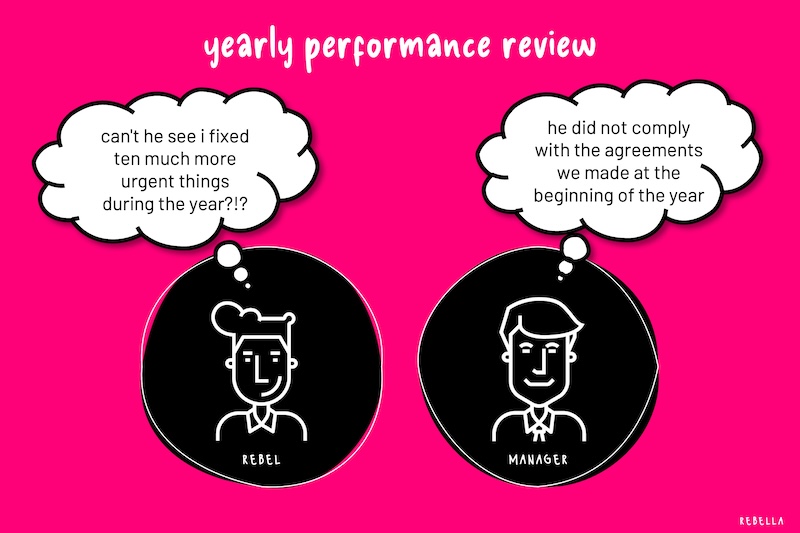
Dr Rebel: Ooops … I did it again! Upsetting the boss, now what?
Today’s question: I might have offended my boss. How can I make up?
I believe today’s question is pretty recognisable for many rebels. At least it is for me, and probably during my corporate career, I have offended my bosses more often than I realised. There is one instance I remember from yesterday.
And so, first a personal story…
At that time, I was leading a team of data scientists, but every now and then, executive management asked me to help accelerate other teams that got stuck on a complex problem. My boss was not too happy about that, but I ensured that this never came at the expense of my regular work.
One time, I helped out a team without his approval. I assumed it would be okay, but I had gone too far, according to him, and we ended up in a pretty heated discussion. We let it go and never took the time to reflect on the situation.
Looking back, I did not handle that situation well. I should have stepped up to clear the air, but I was too scared and too stubborn. Our relationship suffered a severe blow and was never the same again.
An opportunity to grow
Offending your boss can be delicate, but avoiding or ignoring it is the worst thing you can do. Let go of your ego, acknowledge the offence, apologise sincerely, and make amends.
If you do this well, you can turn this situation even to your advantage. Rebels are often seen as strong-willed and know-it-alls, and people do not expect them to admit their mistakes. By handling this situation well, you can show your maturity and willingness to grow personally and professionally. People will be positively surprised!
7-step approach
The best thing is to be proactive and step up. If you follow these steps, you will handle the situation well, and you might even improve your relationship with your boss:

1. Pause and reflect
Assess the situation calmly before acting. Reflect on the context and nature of the interaction. Was it a miscommunication? Did you overstep professional boundaries?
2. Evaluate whether an apology is needed
Rushing into an apology if it’s something that could be smoothed over with time can make the situation worse. Was your offence serious enough to warrant an apology? Sometimes, minor missteps are best addressed through subtle adjustments in behaviour rather than a formal apology.
3. Choose the right time and setting
It is best to apologise in a private, professional setting to avoid discomfort. Request a one-on-one meeting or approach them when available, ideally when they are not busy or stressed.
4. Apologise sincerely and don’t overdo it
Take responsibility and apologise without making excuses for your actions. Acknowledge what you said or did, and own it. Make sure you are concise and avoid over-explaining or rambling about your intentions. For example, in my case (ref the example in the intro): “I realise that I should have discussed my involvement in that project with you upfront. I am sorry, it was not my intention to undermine your position.” Apologising once and effectively is usually enough. Over-apologising can sometimes come across as insincere or even undermine your confidence.
5. Ask for feedback (if appropriate)
Ask if there is anything you can do differently moving forward to avoid similar situations. That shows initiative and that you are committed to learning from the experience. However, if your boss does not want to discuss it in detail, respect that and don’t press for further conversation!
6. Follow through with improved behaviour
Actions often speak louder than words. After apologising, make sure you adjust your behaviour accordingly. If your offence was related to communication style, tone, or professionalism, ensure you work on those aspects. Or, in my case, when I bypassed my manager, I should involve him next time.
7. Follow up (if needed)
After apologising and addressing the issue, maintain a positive, professional attitude. Your ongoing good work can help restore any lost trust over time. However, if the tension persists, follow up after some time to show you’re still committed to resolving the situation.
Rebels have the biggest hearts
Rebels hardly offend others intentionally. Their urge to improve things is so strong that they can’t help fixing it, even if it lies outside their responsibilities. Or they have become so passionate about a topic that they dive in and forget to inform the boss about this potential opportunity. Whenever a rebel has offended you, put yourselves in their shoes and ask yourself whether this was a deliberate action.
👉🏻 Rebels are not like you, and that’s a good thing!

do you have a burning question for dr rebel?


